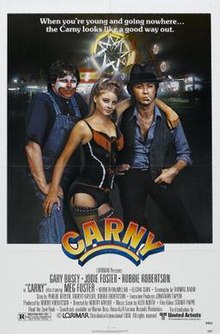
Gary Busey is an American actor. He portrayed Buddy Holly in The Buddy Holly Story (1978), for which he was nominated for the Academy Award for Best Actor and won the National Society of Film Critics Award for Best Actor. His other starring roles include A Star is Born (1976), D.C. Cab (1983), Silver Bullet (1985), Eye of the Tiger (1986), Lethal Weapon (1987), Hider in the House (1989), Predator 2 (1990), Point Break (1991), Under Siege (1992), The Firm (1993), Drop Zone (1994), Black Sheep (1996) and Lost Highway (1997).
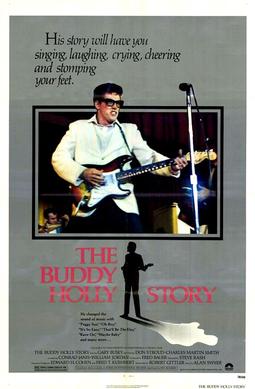
The Buddy Holly Story is a 1978 American biographical musical drama film directed by Steve Rash which tells the life and career of rock and roll musician Buddy Holly. It features an Academy Award-winning musical score, adapted by Joe Renzetti and Oscar-nominated lead performance by Gary Busey. The film also stars Don Stroud, Charles Martin Smith, Conrad Janis, William Jordan, and Maria Richwine, who plays María Elena Holly.

Bugsy Malone is a 1976 gangster musical comedy film written and directed by Alan Parker. A co-production of United States and United Kingdom, it features an ensemble cast, featuring only child actors playing adult roles, with Jodie Foster, Scott Baio and John Cassisi in major roles. The film tells the story of the rise of "Bugsy Malone" and the battle for power between "Fat Sam" and "Dandy Dan".

Carny, also spelled carnie, is an informal term used in North America for a traveling carnival employee, and the language they use, particularly when the employee operates a game ("joint"), food stand, or ride at a carnival. The term "showie" is used synonymously in Australia, while "showman" is used in the United Kingdom.

Straight Time is a 1978 American neo-noir crime drama film directed by Ulu Grosbard and starring Dustin Hoffman, Theresa Russell, Gary Busey, Harry Dean Stanton, M. Emmet Walsh and Kathy Bates. Its plot follows a lifelong thief in Los Angeles who struggles to assimilate in society after serving a six-year prison sentence. The film is based on the novel No Beast So Fierce by Edward Bunker, who also acts in the film.

Margaret Foster is an American film and television actress. Some of her many roles were in the 1979 TV miniseries version of The Scarlet Letter, and the films Ticket to Heaven, The Osterman Weekend, and They Live.

Beach Blanket Bingo is a 1965 American beach party film directed by William Asher. It is the fifth film in the Beach Party film series. The film stars Frankie Avalon, Annette Funicello, Linda Evans, Deborah Walley, Paul Lynde, and Don Rickles. Earl Wilson and Buster Keaton appear. Evans's singing voice was dubbed by Jackie Ward.

Brook Maurio, known professionally as Diablo Cody, is an American writer and producer. She gained recognition for her candid blog and subsequent memoir, Candy Girl: A Year in the Life of an Unlikely Stripper (2005). Cody received critical acclaim for her screenwriting debut film, Juno (2007), winning both the Academy Award and the BAFTA Award for Best Original Screenplay.
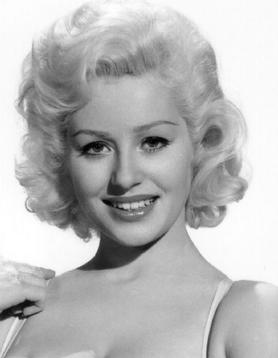
Shirley June "Sheree" Winton was an English actress, and the mother of television presenter Dale Winton.

Freaky Friday is a 1976 American fantasy-comedy film directed by Gary Nelson, with the screenplay written by Mary Rodgers based on her 1972 novel of the same name. The film stars Barbara Harris and Jodie Foster in the lead roles. John Astin, Patsy Kelly and Dick Van Patten are featured in supporting roles. In the film, a mother and her daughter switch their bodies, and they get a taste of each other's lives. The cause of the switch is left unexplained in this film, but occurs on Friday the 13th, when Ellen and Annabel, in different places, say about each other at the same time, "I wish I could switch places with her for just one day." Rodgers added a water skiing subplot to her screenplay.

Herbert Birchell "Bert" Remsen was an American actor and casting director. He appeared in numerous films and television series.

Bitch Slap is a 2009 American action film directed by Rick Jacobson and starring Julia Voth, Erin Cummings, America Olivo and Michael Hurst, with cameos by Lucy Lawless, Kevin Sorbo, and Renee O'Connor.

Alicia Christian "Jodie" Foster is an American actress and filmmaker. She is the recipient of numerous accolades, including two Academy Awards, three BAFTA Awards, and three Golden Globe Awards. She has also earned numerous honors such as the Cecil B. DeMille Award in 2013 and the Honorary Palme d'Or in 2021.
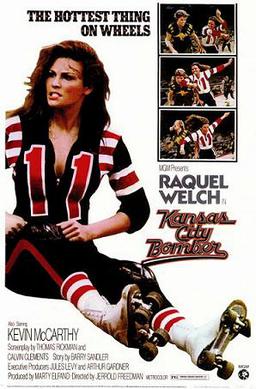
Kansas City Bomber is a 1972 American sports drama film released by Metro-Goldwyn-Mayer, directed by Jerrold Freedman and starring Raquel Welch. It also marks one of the earliest film appearances of Jodie Foster.
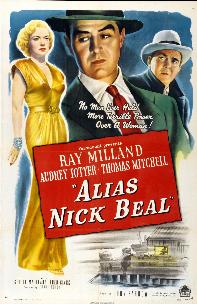
Alias Nick Beal is a 1949 American film noir mystery film retelling of the Faust myth directed by John Farrow and starring Ray Milland, Audrey Totter and Thomas Mitchell. The picture is also known as Dark Circle, Strange Temptation and Alias Nicky Beal.

Are You with It? is a 1948 American musical comedy film directed by Jack Hively. The plot is about a young insurance man who quits his job to join a traveling carnival. The film is based on the 1945 Broadway musical of the same name and the 1941 novel Slightly Perfect by George Malcolm-Smith. The film stars Donald O'Connor, Olga San Juan, Martha Stewart and Lew Parker. Parker reprised his role from the musical.

Carny is a 2009 Canadian television horror film by Syfy and the 17th film in the Maneater Series. The film was directed by Sheldon Wilson and stars Lou Diamond Phillips.
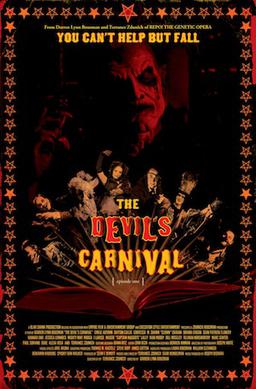
The Devil's Carnival is a 2012 American musical horror film directed by Darren Lynn Bousman and starring Sean Patrick Flanery, Briana Evigan, Jessica Lowndes, Paul Sorvino, Emilie Autumn and Terrance Zdunich. The film marks the second collaboration of Bousman and writer/actor Terrance Zdunich, their previous work being the musical film Repo! The Genetic Opera. The film also brings back several of the cast members of Repo!, such as Sorvino, Alexa Vega, Bill Moseley and Nivek Ogre. The Devil's Carnival has Aesop's Fables and other folklore at the core of its story, with the main characters each representing a fable. Flanery's character John represents "Grief and His Due", Evigan's character Merrywood represents "The Dog and Its Reflection", and Lowndes' character Tamara represents "The Scorpion and the Frog", an animal fable that seems to have first emerged in Russia.
The Muppets Go Hollywood is a one-hour television special that promoted The Muppet Movie, the first theatrical film in The Muppets franchise. It first aired May 16, 1979 on CBS, six weeks before the American release of The Muppet Movie.

Dance with Death is an American film starring Barbara Alyn Woods and Maxwell Caulfield. It is a reworking of Stripped to Kill, a previous film from 1987 produced by Roger Corman's Concorde Pictures studio. It is notable for featuring an early acting role for Lisa Kudrow.
